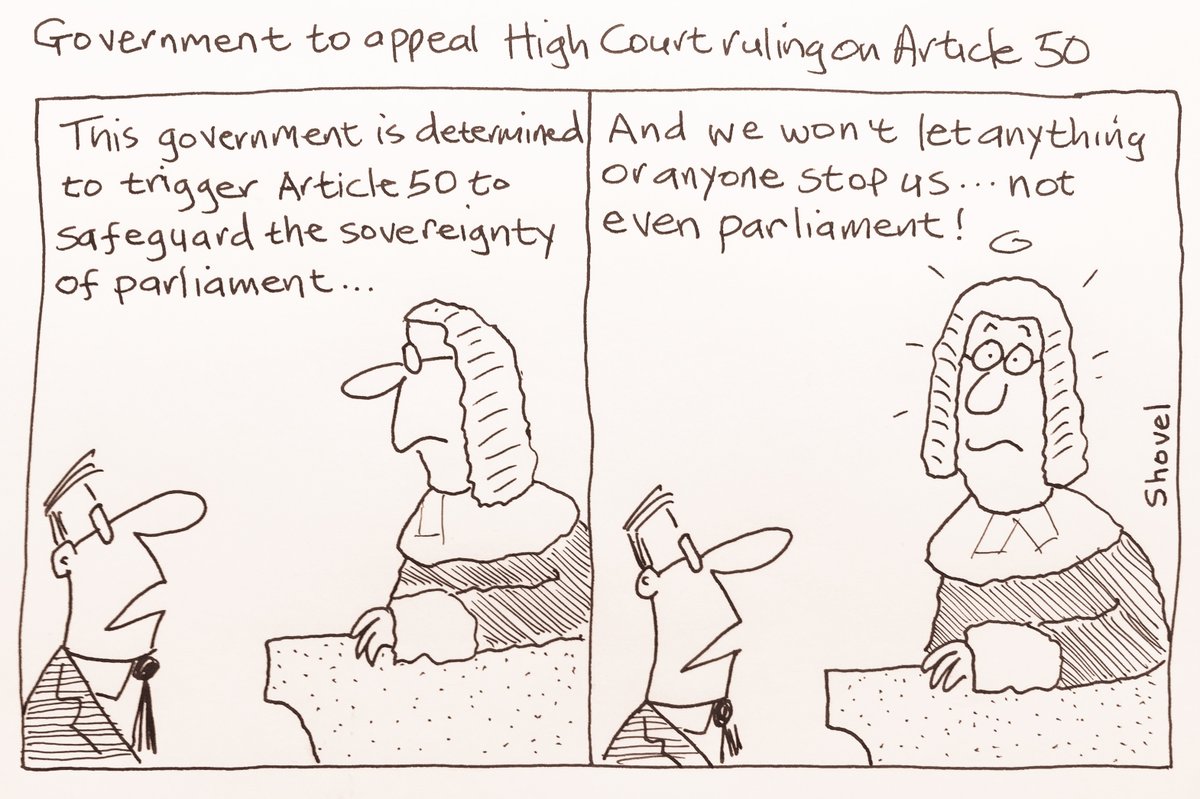Weekly Notes: legal news from ICLR – 14 November 2016
This week’s roundup of legal news and comment includes a bad report against the police, badmouthing the judiciary and bad reactions to the result of the US presidential elections. But it’s not all bad. In Florence the burghers have banned the burgers. Policing Henriques report slams Operation Midland This week saw the publication of a… Continue reading
This week’s roundup of legal news and comment includes a bad report against the police, badmouthing the judiciary and bad reactions to the result of the US presidential elections. But it’s not all bad. In Florence the burghers have banned the burgers.
Policing
 Henriques report slams Operation Midland
Henriques report slams Operation Midland
This week saw the publication of a long expected report by the retired High Court judge Sir Richard Henriques into the Metropolitan Police force’s ill-fated historic sexual offences investigation Operation Midland.
The report is entitled: Independent Review of Metropolitan Police Service’s handling of non-recent sexual offence investigations
It concerns the investigation of lurid allegations, against a number of high-profile politicians, which have turned out to have no little or no evidential basis. Those accused have been horribly traduced, and though cases against them were not proceeded with, they have received little more than weedy apologies for their reputational pain.
Now the complainant, known as “Nick”, is under investigation by Northumbria police for allegedly perverting the course of justice. Henriques identified 43 failings by detectives who spent 16 months and more than £2m pursuing the allegations.
Commenting on the timing of the publication (itself only partial), barristerblogger Matthew Scott (Henriques Report: “Deputy Heads Must Roll.”) said
It is hardly surprising – though very much to be expected in an organisation that prides itself on its public relations as much as on its ability to catch criminals – that it should have chosen to “bury” the report on the day of the US elections.”
He goes on to lambast the force for its revealed failings:
Even the 10% that has been made public reveals that the Met’s finest detectives fell prey to a combination of jaw-dropping naivety, asinine stupidity and Clouseauesque incompetence in allowing themselves to be duped by a man who is plainly either a dishonest chancer or a loopy fantasist.”
The problems seem to have stemmed in large part from a policy of “believing” the anonymous complainant, referred to as “Nick”, and treating him as a victim whose allegations were to be taken at face value unless and until disproved. Scott comments:
As Sir Richard puts it: “requiring an investigator to believe a complaint which may or may not be true is a recipe for injustice.” […]
Some allegations may seem more plausible than others, but the job of the police is to investigate, not to believe or disbelieve “
The report concludes concludes:
“Those accused remained isolated and uninformed of the progress of these several investigations until finally being informed that there was an insufficiency of evidence against them. In short, these men are all victims of false allegations and yet they remain treated as men against whom there was insufficient evidence to prosecute them. The presumption of innocence appears to have been set aside.”
The Met’s motto seems to be “Total Policing”. On this occasion, it might better be put as Total Bungling.
See, in the Guardian, Operation Midland police fell for ‘false claims’ of VIP abuse, report says
Judiciary
Stout and less stout defenders of judicial independence
This week at least two lords were a-leaping to the defence of the senior judiciary in the wake of last week’s onslaught by the disappointed leavers in high places, including the tabloid press. In a letter to the Daily Mail — which last week had accused the High Court Three (Lord Thomas CJ, Sir Terence Etherton MR and Sales LJ) of being “Enemies of the people” — Lord Irvine of Lairg and Lord Mackay of Clashfern said
Most Daily Mail readers will not have read the court’s judgment. They should understand that the judges, acting under their judicial oath, deciding only the question of law the parties had put to them, were in no sense enemies of the people but were doing right to all manner of people according to the laws and usages of this realm.
It’s vitally important that the judiciary, a crucial institution in the maintenance of the rule of law, should not be undermined in the minds of Daily Mail readers and the wider public.”
The present occupant of the office of Lord Chancellor from which both had retired, namely the Secretary of State for Justice, Liz Truss MP, having issued a rather feeble tweet last weekend, spoke at greater length, if not greater effect or volume, in a speech this week at the Spark21 Conference, to celebrate 100 years of women in law. This was mainly about the achievements of women in law, and the need for more of them, and gender diversity in the law generally. She said:
But most of all I want to see more women and ethnic minorities in the judiciary.
This week’s events show the importance of the judiciary in our constitution and our free society. Our independent judiciary is vital.From the Supreme Court down, we are unrivalled around the world in having judges who are independent, impartial and incorruptible.
I can think of no higher calling than joining the judiciary.”
It would just be nice if more of them could be women, reflected Truss. So she went on to announce four proposals to increase diversity in the judiciary by adopting a new approach to recruitment, including a fast track process to promote good candidates based on their potential, regardless of specialism or, it seems, experience. Or to put it another way, the “merit” according to which by tradition the judiciary have always been selected will be defined in a new way to include potential and disregard lack of relevant courtroom experience.
Needless to say, the present Lord Chancellor’s ringing, or at any rate tinkling, endorsement of the integrity and independence of the judiciary was not greeted with undiluted enthusiasm in all quarters. Another of those pesky predecessors in her office even went so far as to suggest that she should be replaced. In another letter to a newspaper, The Times this time, Lord Falconer QC said her “silence” when the row over the High Court’s judgment first erupted had been “striking” and
It signals to the judges that they have lost their constitutional protector. Until she is replaced by someone willing and brave enough to do the job the judges should rightly fear for their independence.”
Brexitology

Lords Library briefing on responses to Art 50 judgment
Although the government reacted to the High Court’s decision in Regina (Miller and another) v Secretary of State for Exiting the European Union (Birnie and others intervening) [2016] EWHC 2768 (Admin) by saying it would appeal to the Supreme Court (and permission has been given and a date of hearing been set), MPs outside the government responded in a variety of ways to the ruling. Now the House of Lords Library has collected the responses in a briefing paper, which you can read. In summary, it says:
While some parties at Westminster and in the devolved assemblies, such as the Scottish National Party (SNP), the Green Party, Plaid Cymru and the Social Democratic and Labour Party (SDLP) welcomed the judgment, UKIP’s acting leader Nigel Farage spoke of his fear that attempts would be made to block or delay the triggering of Article 50. Keir Starmer, the Shadow Secretary of State for Exiting the European Union, said that Labour would not vote down Article 50, but he pressed the Government to answer “basic questions” about the future relationship it sought with the EU. Nick Clegg, the Liberal Democrats’ spokesman on Exiting the European Union, said he would work with MPs from all parties to amend any legislation the Government brought forward as a result of the Court judgment to ensure that the Government would have to pursue “a soft rather than a hard Brexit” and that the British people would have a say on the final terms of the UK’s departure at the end of the negotiation process.”
UPDATE 15 November.
The House of Commons Library has now also produced a briefing paper, on Brexit and the EU Court. This deals more specifically with a particular legal issue, namely the revocability of any art 50 notification actually sent:
Some press reports suggest the Court of Justice of the EU (CJEU) would have the last word on this. But can the CJEU rule on matters of UK constitutional Law? Many experts believe that the question central to the case, but not ruled on by the High Court, was whether Article 50 notice, once given, could be withdrawn. If it can be revoked, then the argument that Article 50 notice leads inevitably to a loss of rights under the European Communities Act 1972 might not hold. This paper looks at the questions of revocability and referral to the EU Court.”
This question has been the topic of some recent commentary, including:
- Piet Eeckhout, in his London-Brussels blog, Miller and the Art 50 notification: revocability is irrelevant
Law (and injustice) from around the world
America
The People Have Spoken.
On 9 November 2016, despite the large number of votes going to the Democratic candidate, Hillary Clinton, the operation of the Electoral College resulted in a shock victory for the Republican candidate, Donald Trump, who is now President Elect, until his inauguration in the new year.
What does this mean for law? Since his election, Trump has calmed down a lot of his rhetoric and appeared to roll back on some of his more lurid electoral promises. Maybe that was just hustings talk, in the same way his repellant comments about women were said to be just locker room talk.
But there’s one area where the Republican dominance may last for years to come, and that’s in the choice of a replacement Justice of the Supreme Court, following the death earlier this year of Justice Antonin Scalia. We reported in March how the outgoing President, Barack Obama, had wanted to nominate Chief Judge Merrick Garland of the D.C. Circuit, who was said (on the SCOTUS blog) to be “a highly qualified and largely apolitical judge”. In view of the forthcoming election, Republican senators blocked that moderate proposal.
Scalia was a man of strong opinions, legally conservative, socially perhaps even more so, as demonstrated in his somewhat scathing dissent in last year’s equal marriage ruling, Obergefell v. Hodges (slip opinion – there is no official US reports citation yet).
The options for another conservative appointee to replace him, and the likely effect on some controversial cases coming up, are discussed by the New York Times: What the Trump Presidency Means for the Supreme Court
See also, in the Guardian, Scott Lemieux: A rightwing supreme court could be Donald Trump’s most insidious legacy
An African perspective on Trump
There has been wailing and gnashing of teeth or what Boris Johnson called “whinge-o-rama” from Europe, and from the liberal elite in the west generally, at the victory of the Great Vulgarian, but it is interesting also to consider it from a developing world perspective. In in article in This is Africa entitled Trump or not, Africa must change, Levi Kabwato considers the possibilities for Africa of an insular president and weakening effect of the “massive cultural crises” which “the world’s oldest imperial powers are going through”:
For centuries, Africa has unjustifiably occupied a subservient role in the global political economy … the symbolic import of Brexit and Trump victories should not only be a source of marvel to Africans, but also be seen as fierce indicators of seismic shifts in the global order. “
See also Levi Kabwato’s earlier piece, Brexit, Coloniality and Democracy – an African perspective on Britain’s exit from the European Union
And in the Middle East
‘Bloody battles and great chaos’: Islamist extremists welcome Trump’s victory was the headline in the Guardian as it reported how militant jihadis had welcomed the new choice of US President, whose pre-election rhetoric against Muslims living in or coming to America seems likely to instil yet more fear and loathing.
However, the expectation seems to be that Trump will be more likely to support — or not oppose — the Syrian-Russian alliance against the rebels in Syria, on the basis that it is ISIS that should be defeated as the primary enemy. No one could argue that the existing American approach, apart from wringing a lot of hands, has actually been that effective. See, also in the Guardian, Syrian opposition left with nowhere to turn after Trump’s victory.
Italy

Big Mac cheesed off after burghers reject burgers
Plans for a Golden Arches outlet on the historic Piazza del Duomo (Cathedral Square) in Florence have been rejected by the city’s mayor in a decision upheld by a technical panel in charge of preserving the city’s ancient heart. The burger chain McDonald’s is not happy and has decided to sue the city for €18m, reports the BBC, claiming it has been discriminated against. The latest clash between art and commerce comes a month after it was reported that cardinals at the Vatican were angered by plans to open a branch in a piazza next to Saint Peter’s Square.
“Ars longa cena brevis”, as we say in the law.
Russia
LinkedIn ban upheld by court
A contravention on storing data outside the country has led to LinkedIn being banned in Russia, after a Moscow court upheld the decision of the country’s online regulator to block the website.
Campaigners have said that keeping all personal data within Russia makes users more vulnerable to state surveillance and control.
Source: Independent, Russia to ban LinkedIn, leading fears of state crackdown on internet freedom
That’s it for now. Our thanks to all who flagged up stories, via their blogs (which we always try to acknowledge) and via Twitter (where useful tweets are retweeted).
This post was written by Paul Magrath, Head of Product Development and Online Content at ICLR, who also tweets as @maggotlaw. It does not necessarily represent the opinions of ICLR as an organisation. Comments welcome on Twitter @TheICLR.
Sign up now for weekly email alerts from this blog. Just put your email address into the box on the left.